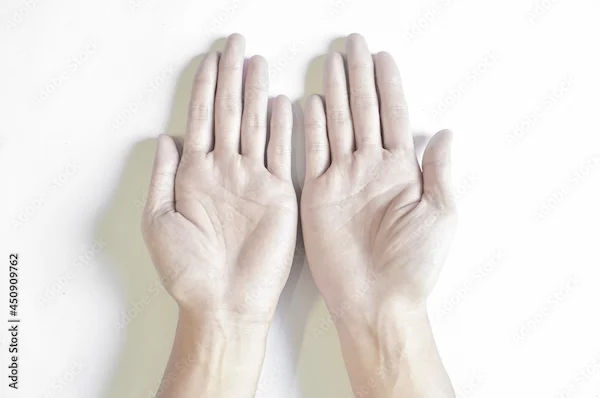Viral Fever Symptoms and Overview
Learn about viral fever symptoms, causes, and home remedies. Discover how to manage it effectively, when to see a doctor, and tips to prevent infections.

Written by Dr. Rohinipriyanka Pondugula
Reviewed by Dr. Shaik Abdul Kalam MD (Physician)
Last updated on 11th Aug, 2025

Introduction
Feeling feverish, tired, and achy? You might be experiencing viral fever, a common illness caused by viral infections. While it can make you feel miserable, the good news is that most viral fevers go away on their own with proper care. In this article, we’ll discuss what viral fever is, its symptoms, causes, and how you can manage it effectively.
What Is Viral Fever?
Viral fever is an increase in body temperature caused by a viral infection. Unlike bacterial infections, which require antibiotics, viral fevers usually resolve with rest, hydration, and home care. These infections can affect anyone—children, adults, and the elderly—and are more common during seasonal changes or in crowded environments where viruses spread easily.
Common Symptoms of Viral Fever
Viral fever symptoms can vary from mild to severe, depending on the type of virus and your immune system. Some of the most common signs include:
High fever (100°F to 103°F or higher)
Chills and sweating
Headache and body aches
Fatigue and weakness
Sore throat and cough
Runny or stuffy nose
Loss of appetite
Nausea or vomiting (in some cases)
Diarrhea (especially in children)
These symptoms usually last for 3 to 7 days, but in some cases, fatigue and weakness may linger for a few more days.
What Causes Viral Fever?
Viral fever is caused by different types of viruses, including:
Influenza virus (flu)
Dengue virus
Chikungunya virus
Common cold viruses (rhinovirus, adenovirus)
Respiratory syncytial virus (RSV)
Enteroviruses (causing stomach flu)
These viruses spread through:
Airborne droplets (when an infected person coughs or sneezes)
Contaminated food or water
Mosquito bites (in cases of dengue or chikungunya)
Direct contact (touching surfaces or shaking hands with an infected person)
How Does Viral Fever Affect Your Health?
For most healthy individuals, viral fever is not dangerous and subsides within a week. However, in some cases, complications can arise, especially in:
Young children (risk of dehydration)
Elderly individuals (weaker immune response)
People with chronic illnesses (diabetes, heart disease, or weakened immunity)
Severe viral infections (like dengue or influenza) can lead to complications such as:
Dehydration (due to fever, vomiting, or diarrhea)
Pneumonia or bronchitis (if the infection spreads to the lungs)
Organ damage (in rare cases of severe dengue or viral hepatitis)
If your fever persists beyond 3-4 days or is accompanied by severe headache, breathing difficulty, rashes, or confusion, seek medical help immediately.
Health Topic Carousel:
Doctor Speciality: General Practitioner
Text: Consult Top Specialists
How to Manage Viral Fever at Home
Since most viral fevers don’t require antibiotics, the best treatment involves rest, hydration, and symptom relief. Here’s what you can do:
1. Stay Hydrated
Drink plenty of water, coconut water, herbal teas, or oral rehydration solutions (ORS).
Avoid caffeinated or sugary drinks, as they can worsen dehydration.
2. Get Enough Rest
Your body fights infections better when you rest. Avoid strenuous activities.
3. Control Fever with Medications
Paracetamol (acetaminophen) helps reduce fever and body aches.
Avoid aspirin (especially in children) as it can cause complications.
4. Eat Light and Nutritious Foods
Opt for soups, khichdi, boiled vegetables, and fruits like bananas and apples.
Avoid spicy, oily, or heavy meals that can upset digestion.
5. Use Home Remedies for Relief
Ginger-honey tea for sore throat.
Steam inhalation for congestion.
Lukewarm sponge baths to bring down high fever.
When to See a Doctor?
While most viral fevers improve with home care, consult a doctor if you experience:
Fever above 103°F that doesn’t reduce with medication
Severe headache, neck stiffness, or confusion (signs of meningitis)
Difficulty breathing or chest pain
Rashes, vomiting blood, or black stools (possible dengue or internal bleeding)
Fever lasting more than 5 days
If you’re unsure about your symptoms, Apollo 24|7 offers online doctor consultations where you can get expert advice without leaving home.
Preventing Viral Fever
Since viruses spread easily, prevention is key:
Wash hands frequently with soap and water.
Avoid close contact with infected individuals.
Use mosquito repellents to prevent dengue or chikungunya.
Stay up-to-date with flu vaccines (especially for high-risk groups).
Boost immunity with a balanced diet, exercise, and adequate sleep.
Final Thoughts
Viral fever is common and usually harmless, but it can make you feel exhausted. With proper rest, hydration, and care, most people recover within a week. However, if symptoms worsen or persist, don’t hesitate to seek medical help.
Need expert advice? Book a consultation with Apollo 24|7 doctors or schedule a lab test for accurate diagnosis. Stay healthy and take care!
Health Topic Carousel:
Doctor Speciality: General Practitioner
Text: Consult Top Specialists




